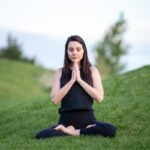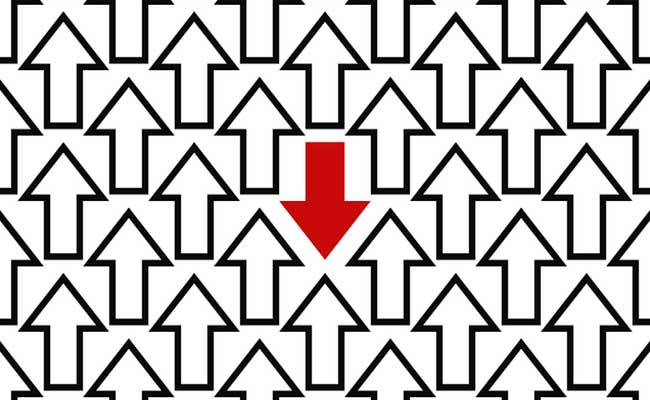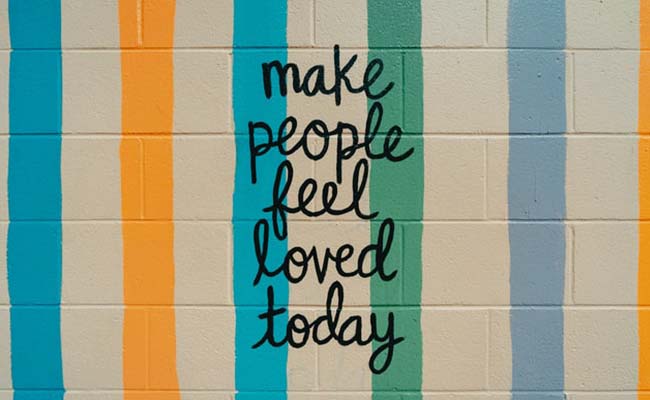If you aren't a meditator, you probably think, “why bother?” And you probably don't have time, right? Which makes you a perfect candidate for meditation, so do read on…
And if you are a part-time meditator, or someone who dabbles occasionally when encouraged by a post like this, at times you probably find yourself questioning whether meditation is necessary in living a fully conscious existence and maintaining a healthy mind.
Well, let's break it down: Life is pretty challenging on the best of days. Fast-paced modern living brings with it a heap of stress, expectation and responsibility, not to mention the pressure we put on ourselves to achieve, achieve, achieve!
Amidst the madness of the mind and life’s daily conundrums, we come under tremendous strain. This makes it very difficult to stay present; to see through the mind’s misleading projections and identify with what’s fundamentally important to living a soul-fulfilling existence.
Stress? I'm not stressed! Suffering? I'm not suffering.
Really?
Think about those nights you get into bed anticipating a restful 8 hours, only for your mind to sporadically start evaluating every aspect of your life through the window of all three major tenses.
Consider those days when you feel compelled to grip the bridge of your nose – where it meets your eyes – and give it a good squeeze in an attempt to release some of that tension making your head feel like its going to explode.
And how about those days when you’re at boiling point. Those days when you can’t seem to get anything done, when no matter how much you try, you just seem to be hitting brick walls and getting distracted by everything but what you’re supposed to be doing!
All this doing, planning, and thinking gets the mind in a right old pickle. We find ourselves unable to think and see clearly and find a sanctuary of mental peace to reconnect the dots, to bring the mind home, to let go of it all, empty the clutter, recentre, rebalance and breathe…
…So do we need meditation? Yes, I certainly think so. Or at the very least a mindfulness exercise or two each day!
Sure, if you’re an ultra laid back, stress-free kind of person, you probably find it easy to take 5, take a deep breath and quickly realign. But let me be clear, meditation is so much more than relaxation. And here’s why:
Think of life like a dense forest: a difficult place to walk without a stick to clear a pathway. The mind becomes a jungle of thoughts, emotions and feelings, all getting in the way of the beautiful, serene view. Left in this disarray, the mind becomes caught up in its projections – its evaluations, perceptions and judgments – and leads us on a roller coaster that we have little control over stopping.
And so it's no wonder we develop a tendency to become irritable with others, and end up saying something unkind and out of character. It's no wonder we end up internalizing all this negative energy and feeling down in the dumps. And no wonder many of us suppress the mental commotion with a drink or three, sleeping pills, another strong coffee, anti-depressants or whatever else is suggested as a potential cure.
Enter meditation…
….Meditation gives us the stick we need to cut a pathway through the mind’s madness. It clears the branches and brambles that stop us walking safely and peacefully without hindrance, releasing us from all the grasping, striving, over-thinking, projecting, fearing, judging and the general whirlwind of unreliable thoughts that detach us from a true awareness of life.
Meditation steers your awareness back to calmer seas when your ship has been blown off course. The result is a calm, positive, balanced and present state of mind that enables you to see the forest for the trees and glide through your day with calm, focused, non-judgmental awareness, and most important of all, compassion for yourself and others.
In a word, meditation frees us.
If you don’t do so already, I strongly recommend taking 30 minutes, if not an hour, out of your day to meditate; either first thing in the morning, mid-afternoon or early evening (before dinner).
Try This Easy Breathing Meditation Today
Here’s a breathing meditation taken from my Pocket Mindfulness 3 book. Read through the guidelines first and then try it when the urge takes you. It’s really easy to follow:
– First of all, turn off any devices that are likely to disturb you, and eliminate external distraction as best you can.
– Sit or lie down with your eyes closed. Sitting is preferable because you don’t want to fall asleep. If you can sit cross-legged – in the lotus position – then do so.
– You’re going to be breathing though your nose, so you’ll need to close your mouth. Relax your jaw muscles so your upper and lower teeth are not clenched or touching one another.
– Take a deep breath until your lungs are full. Exhale effortlessly, allowing your breath to fall out of you. Don’t blow or apply force in any way.
– As you breathe in and reach capacity, you will become aware that you need to breathe out to keep on breathing. And once you have fully exhaled, you will become aware that you need to breathe in again to continue the cycle. Embrace this awareness and simply follow your breath. As your attention centres, this awareness will deepen and you’ll fall into a meditative state.
– As you breathe out, allow the mind to follow the breath as it flows effortlessly from your body. If you are doing this for the first time, you may experience the urge to smile or yawn. You may also begin to feel unusual bodily sensations such as shivers and a heightened awareness of your being. Just allow your body to respond in whatever way it chooses. Don’t restrict or attach yourself to thought, movement or emotion in any way.
– Follow each rise and fall of the breath with your consciousness. See and feel your breath moving through your body.
– Remember that there is no effort required. There is no goal and no place to get to. Don’t force anything. Simply allow the meditation to unravel.
– Visualise the breath moving through your body as it enters, swirls around and leaves.
– Notice the bodily sensations that occur as you breathe. Notice warmth, muscle contraction, aches and pains, but don’t hold onto their presence; just notice and let go. Make no effort to do anything other than breathe. Allow yourself to connect with your breath and become intimately detached with its movement.
– You will slowly enter a peaceful state of mind, and you will feel present and relaxed as your mind submits to stillness. Mental attachment to work, money and material possessions will fall away in this moment.
– You are face-to-face with your mortality, with life, with the one thing maintaining your existence. You’ll notice immediately that resting here in this awareness isn’t at all daunting or dark, but instead light, blissful and peaceful.
This simple cultivation of pure awareness and alignment with Mother Nature will change your experience of life outside of meditation. And the more regularly you meditate, the more aware you will become of how powerful the breath is, not just as a life force but as a natural way to turn the mind inwards and bring the mind home from its suffering.
When the mind is focussed on the breath, the mental chatter and constant bombardment of evaluation and reckoning falls away. You will submit to simply being here. You will come home to yourself and rest in the comfort of stillness.
No longer will you be swamped by thoughts of memories and future expectations, but simply harmonize with what is in this moment. And this is the absolute point of meditation: to be concerned with what is, to connect your mind and body with the universe and fall awake into the world.
The wonderful thing about learning to use the breath in this way is that it can be adapted to life outside of meditation. Whenever you feel overwhelmed, stressed or anxious, simply come back to the breath and allow it to lead your mind home to the true nature of things.




